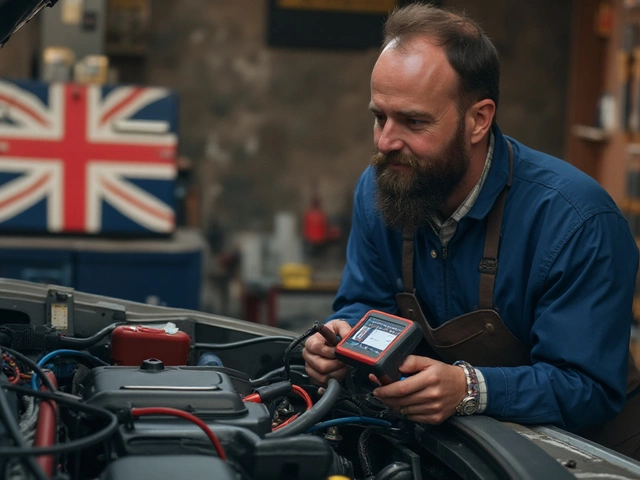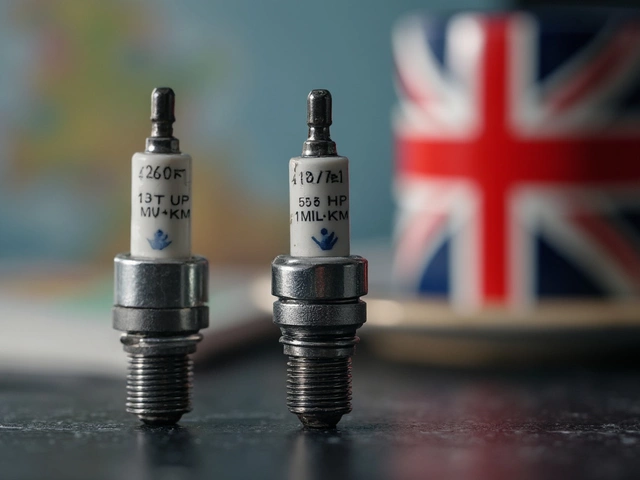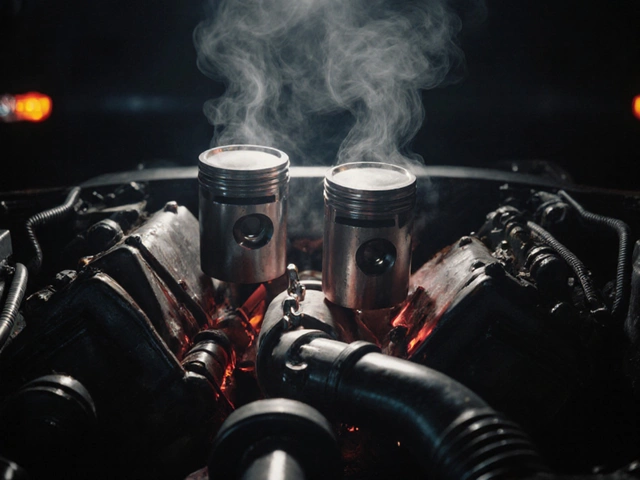Ball Joints: What They Are and Why They Matter
Every time you turn the wheel, a ball joint is working behind the scenes to keep your steering smooth. It’s the pivot that links your control arms to the steering knuckle, letting the wheels move up and down while still rotating left‑right. When a ball joint wears out, you’ll feel it in the steering, handling, and sometimes even hear clunks.
Because ball joints are part of the suspension, a bad one can affect tyre wear, fuel efficiency and overall safety. Knowing the tell‑tale signs early can save you from costly repairs and keep your car road‑worthy.
How to Spot Bad Ball Joints
Here are the most common clues that a ball joint needs attention:
- Steering vibration: If the wheel shakes at higher speeds, the joint may be loose.
- Clunking noises: A metallic knock when you go over bumps or turn the wheel usually points to wear.
- Uneven tyre wear: Worn ball joints cause the wheel to sit at the wrong angle, leading to cupping or feathering on the tyre tread.
- Loose steering feel: The wheel may feel vague or wander on its own.
- Sagging suspension: The car might sit lower on one side, especially after a hard turn.
If you notice any of these, have a mechanic check the ball joints right away. Ignoring them can lead to a sudden failure, which often means losing control of the vehicle.
Replacing Ball Joints: What to Expect
Changing a ball joint isn’t a DIY job for most owners because it requires special tools and precise torque settings. A professional shop will lift the car, remove the wheel, separate the joint from the control arm and install a new unit with the correct preload.
The cost varies by make and model, but you can expect labour between £70‑£120 and parts ranging from £30‑£80. At Northwich Tyres Centre we use OEM‑grade joints that match your vehicle’s original specifications, so you get the same durability as a brand‑new car.
While you’re in the workshop, it’s smart to have the shop inspect related suspension parts – tie‑rod ends, bushings and wheel bearings. Replacing everything at once can prevent you from coming back for another fix a few months later.
Our team offers a quick turnaround. Most ball‑joint replacements are done within a couple of hours, and we’ll run a full alignment afterward to make sure your wheels are set correctly. A proper alignment extends tyre life and improves fuel economy.
Don’t wait until the joint makes a loud clank. Schedule a check‑up with Northwich Tyres Centre, and we’ll tell you exactly what needs fixing, how much it will cost, and when you can be back on the road.
Remember, a healthy suspension means a safer drive, better handling and lower long‑term expenses. Keep an ear out for noises, feel for vibrations, and trust the pros when it comes to ball joints.
 9 June 2025
9 June 2025
Suspension Repairs: What Are the Most Common Fixes Drivers Deal With?
When your car starts bouncing, creaking, or pulling, there's a good chance your suspension is begging for attention. This article breaks down the most common suspension repairs, explains why each happens, and shows how they affect your drive. From worn-out shocks to busted ball joints, you'll learn which parts typically fail first and the warning signs to watch for. Expect practical tips on spotting problems early and ideas for saving money. If you want a smoother, safer ride, these are the fixes you need to know.
Tags
- car maintenance
- engine oil
- spark plugs
- brake pads
- engine performance
- vehicle maintenance
- spark plug replacement
- windshield wipers
- fuel pump
- suspension parts
- clutch replacement
- clutch kit
- car performance
- oil change
- air filters
- car suspension
- car radiator
- exhaust systems
- engine misfire
- fuel pump failure






0